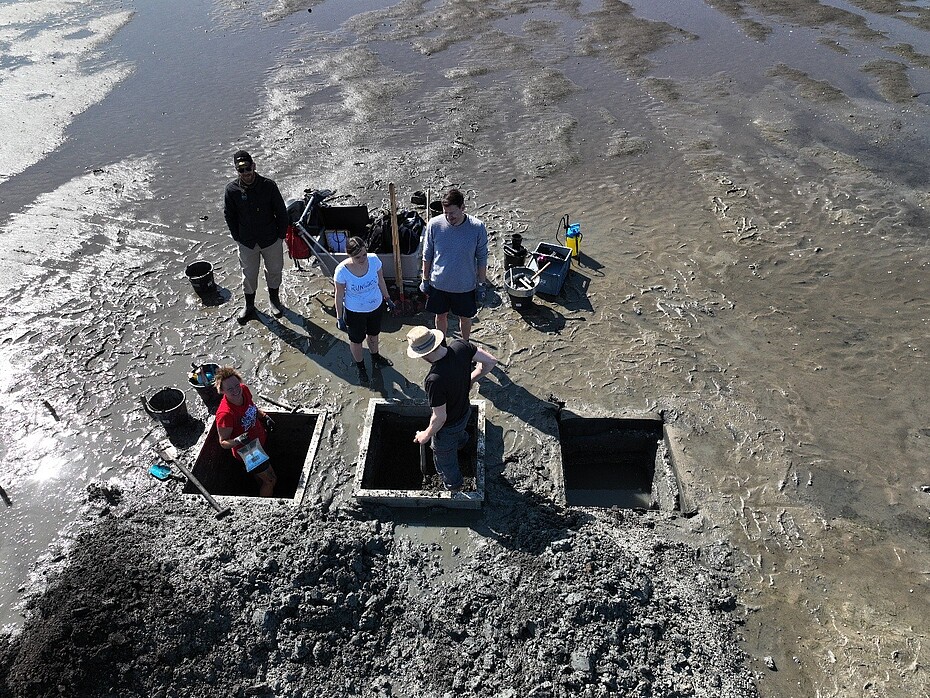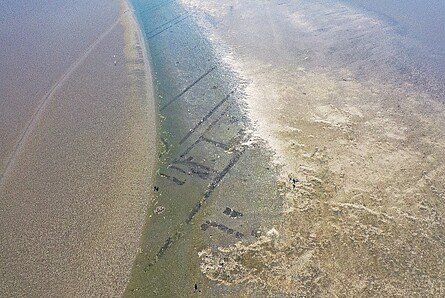New research group TORF receives funding from the DFG


A new research group is investigating how people lived on the North Frisian Wadden Sea in the Middle Ages and how they radically transformed the coastal landscape. The project, entitled ‘Times of Rise and Failure – TORF’, combines humanities and natural science disciplines in seven sub-projects and will be funded by the German Research Foundation (DFG) over the next four years.
TORF builds on the intensive research that has taken place in the North Frisian Wadden Sea over the past ten years, which has led, among other things, to the discovery of a large church – probably that of the medieval trading centre of Rungholt – about seven kilometres off the coast of the Nordstrand peninsula. The new project now aims to reconstruct the entire medieval coastal landscape of North Frisia. TORF brings together researchers from archaeology, history, geography, geology, geophysics and microbiology in close interdisciplinary collaboration. The project is being led by the Geography Department at Johannes Gutenberg University Mainz (JGU) and involves the NIhK, Christian Albrecht University of Kiel (CAU), the Leibniz Centre for Archaeology (LEIZA) and the Schleswig-Holstein State Archaeological Office (ALSH). The NIhK is represented in the research group by Dr Friederike Bungenstock, who is responsible for the sub-project ‘Rising sea level and former coastlines in North Frisia - SEAFRONT’. Within the sub-project, new approaches to sea level research will be applied and improved.
Traces of a lost medieval settlement preserved in the mudflats near the Hallig Südfall (Photo: Bente Majchczack, University of Kiel).
The TORF team uses pit excavations during low tide to get insights to archaeological structures hidden beneath the tidal flats. (Photo: Dirk Bienen-Scholt, State Archaeology Department Schleswig-Holstein)
